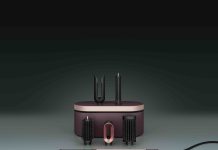An Uninterruptible Power Supply (UPS) helps protect against power outages by automatically switching to stored battery power during an outage. While nobody doubts their value when it comes to protecting mission-critical corporate servers and storage appliances, should they be deployed to protect every PC on the corporate network?
Make it a Management Decision
Helen Ding of Schneider Electric spotted this very question on a forum for IT professionals, and explained in a blog entry that the decision whether to go with UPS protection isn’t so much an IT decision, but a management one. For a start, senior executives must decide if the cost of purchasing and maintaining UPSs across the company is lower than productivity loss or reboot times as PCs are abruptly shut off and restarted.
If the deploying of UPS to protect PCs is deemed desirable, one strategy to make the cost more palatable is to make UPSs part of the regular IT refresh cycle. This strategy significantly reduces the budget hit, allowing enterprises to phase them in over multiple years.

Consider Interruptions and Data Loss
Indeed, Ding pointed to a Gartner study that pegged the average cost of IT downtimes at as much as $5,600 per minute. While the study was done some years ago, digitalisation and heavier use of digital technology in businesses mean that losses are likely to be even higher now. This will obviously vary across industries, with high-value verticals such as a factory or a busy legal firm likely to lose more.
There are other aspects of downtime that may not be easily captured. For instance, interruptions caused by downtime, or precious hours of work that is wasted by corrupted files as PCs abruptly shut down. The former can impact laptop users too, due to worries about battery power running out before an important task can be completed.
UPS Offers Protection Too
One often overlooked aspect of UPS is their ability to protect appliances not just from blackouts, but from a poor electrical supply. A UPS ensure that IT systems (and PCs) are fed a steady stream of clean power that is free from jitter, ensuring that the lifespan of sensitive electronics is not inadvertently shortened as a result.
Moreover, the inherent surge protection circuits in modern UPSs also keeps your expensive hardware stays unharmed in the aftermath of rare but highly damaging spikes in power such as a lightning strike. Depending on luck, a lightning hit (Singapore is known as the “lightning capital” of the world) can damage all electronics within the PC, including storage drives.

Hedging Your Bets
While laptops are predominantly used in modern corporate networks, PCs are still more comfortable and affordable for desk-bound workers. In many cases, employees who use desktops due to the graphical and computational capabilities that only desktop workstations. Examples include designers and engineers, and it certainly makes no sense for these highly-paid employees losing their valuable work or time.
Rather than protecting all PCs with UPSs, it may be possible for an enterprise to their hedge bets by deploying them on certain workstations. This can serve to keep a lid on infrastructure cost while protecting the highest value work.
Enterprises considering the use of UPS to protect PCs will be interested to know of a new generation of UPS that uses lithium-ion batteries offered by UPS makers such as Schneider Electric. Read more about their benefits such as greater longevity and other advantages here.












